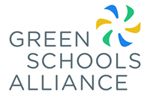Links
 Alliance for Climate Education
Alliance for Climate Education
http://www.acespace.org/
ACE is the national leader in high school climate science education. ACE educators present climate science that resonates with students via an award-winning in-school assembly that blends storytelling, cutting edge animation, music and video. When the ACE Assembly ends, many students are ready and eager to take action, and our Student Action Programs help get them started.
Climate Change
From the USDA Forest Service
http://www.fs.fed.us/climatechange/
The Forest Service has several inter-related programs to help forests, grasslands and humans mitigate and adapt to global climate change. For the Climate Change Resource Center, go to http://www.fs.fed.us/ccrc/.
Climate Change Wildlife and Wildlands: A Toolkit for Formal and Informal Educators
From United StatesGlobal Change Research Program
http://www.globalchange.gov/browse/educators/wildlife-wildlands-toolkit
Toolkit Materials: http://www.globalchange.gov/browse/educators/wildlife-wildlands-toolkit/materials
The purpose of the Climate Change, Wildlife and Wildlands Toolkit for Formal and Informal Educators is to provide classroom teachers and informal educators with the tools to educate middle school students about the science of climate change, its impacts on U.S. wildlife and wildlands, and what kids can do to help address the issue.
Climate Generation: A Will Steger Legacy
https://www.climategen.org/our-core-programs/climate-change-education/
Climate Generation believes that educating is a tool of empowerment and that empowering educators as critical messengers of climate and energy literacy is part of the solution to climate change.
Climate Literacy Framework: A Guide for Individuals and Communities
From U.S. Global Change Research Program
http://www.globalchange.gov/browse/educatorsy
The Essential Principles of Climate Science presents important information for individuals and communities to understand Earth's climate, impacts of climate change, and approaches for adapting and mitigating change. Principles in the guide can serve as discussion starters or launching points for scientific inquiry. The guide can also serve educators who teach climate science as part of their science curricula. The guide is available in English and Spanish!
Climate.gov
From NOAA
http://www.climate.gov/
NOAA Climate.gov provides science and information for a climate-smart nation. Americans’ health, security, and economic well-being are closely linked to climate and weather. People want and need information to help them make decisions on how to manage climate-related risks and opportunities they face.
Cool the Earth
http://cooltheearth.org
Ready to inspire environmental action in your school community? The grassroots organization, Cool the Earth, is now enrolling K-8 schools for the 2012-13 school year to run their free climate change program that motivates students and their families to take carbon-saving actions. The ready-to-run program is implemented by a parent or teacher volunteer so step up and start making a change at your school!
E3: Economy – Energy – Environment
From the US. Environmental Protection Agency
https://www.epa.gov/e3
E3: Economy, Energy and Environment is a federal technical assistance framework helping communities, manufacturers and manufacturing supply chains adapt and thrive in today's green economy. EPA and five other federal agencies have pooled their resources to support small and medium-sized manufacturers with customized assessments. E3 is helping communities across the country reduce pollution and energy use while increasing profits and creating new job opportunities.
Energy Explained
From the U.S. Energy Information Administration
http://www.eia.gov/energyexplained/
This source provides up-to-date energy facts and data on the entire range of energy topics. Do you understand where your gasoline comes from, what determines the price of electricity, or how much renewable energy we use? If not, you're not alone. But now you can learn all about energy at Energy Explained, a guide to the entire range of energy topics from biodiesel to uranium.
Energy Literacy: Essential Principles and Fundamental Concepts for Energy Education
From the U.S.Department of Energy
http://energy.gov/eere/education/education-homepage
This guide identifies seven Essential Principles and a set of Fundamental Concepts that, if understood and applied, will help individuals and communities make informed energy decisions. The intended audience is anyone involved in energy education from K-Gray and is meant to inform the improvement and development of energy curriculum to more broadly cover the Fundamental Concepts. The Energy Literacy Framework is free to download from the website and up to five hard copies can be ordered.
Energy Saver
From the U.S. Department of Energy
http://energy.gov/energysaver/energy-saver
This site includes energy saving content as well as how-to articles and videos, calculators, and a blog. Beyond providing information about low-cost ways to lower household energy bills, the site also provides information about local tax credits, rebates and energy efficiency financing that may be available in different communities.
The Entire IPCC Report in 19 Illustrated Haiku
From Sightline Daily
http://daily.sightline.org/2013/12/16/the-entire-ipcc-report-in-19-illustrated-haiku/
Gregory Johnson distilled the entire Intergovernmental Panel on Climate Change (IPCC) report into haiku.
Envirolution
http://envirolution.org/
Envirolution™ is dedicated to developing and scaling dynamic K-12 education, job training, leadership academy, and community outreach programs centered around green industries and green energy. With a focus on service learning, our programs not only provide career development for students, but also enable our participants to give back to their communities. Envirolution™ seeks to promote global change by championing local efforts that empower citizens to do positive, meaningful work and to make a good living while giving back to their own social and environmental communities.
Exploring Energy Efficiency & Alternatives (E3A)
From the Montana and Wyoming Cooperative Extension Systems
http://e3a4u.info/for-educators/
E3A was developed as a foundation for non-biased, research-based information on home and agricultural energy efficiency and conservation strategies and small renewable energy technologies. E3A provides ready-to-use downloadable fact sheets, links to resources, and resources to help farm and home consumers explore small renewable energy systems For educators, E3A is a self-guided, self-contained grab-and-go-toolkit of resources for a wide range of audience applications - K-12, volunteer, train-the trainer and higher education energy education. , The E3A toolkit includes lesson plans, evaluation tools, teaching demonstration kits, fact sheets, presentation materials and other resources. The E3A program is being adopted by a number of other states as a foundation for their statewide energy curriculum and a national training was offered to facilitate this adoption of the program.
The Foundation for Water & Energy Education
http://fwee.org/
The Foundation for Water and Energy Education is committed to providing balanced information regarding the use of water as a renewable energy resource in the Northwest.
Green Ribbon Schools
https://www2.ed.gov/programs/green-ribbon-schools/index.html
This is a national program recognizing schools making concerted energy efficiency, conservation and sustainability efforts. See if your state is involved and learn about what it takes to become a Green Ribbon School.
Green Schools
http://www.projectgreenschools.org/
Green Schools is a multiple award-winning 501 (c) 3 nonprofit organization organized for Environmental Education [EE], STEM Education, and Environmental Literacy purposes. Green Schools’ mission is to create Greener & healthier students & schools through Environmental Education, Innovation, Leadership, and Action! Green Schools provides a number of Hands-on, Environmental Education/STEM-Education programs and resources to help students [K-16], schools, and communities make The Green Difference!
The Green Schools National Network (GSNN)
http://www.greenschoolsnationalnetwork.org/
This is a non-profit organization advances the national Green & Healthy Schools Movement by connecting like-minded and passionate education, non-profit, corporate and public sector individuals and programs. GSNN is the national umbrella organization that works collaboratively with others to improve education in the United States. Education for sustainability helps young people gain the knowledge, skills, motivation and hands-on experiences to make the world a better place for everyone and everything.
Household Carbon Footprint Calculator
From the U.S.Environmental Protection Agency
http://www3.epa.gov/carbon-footprint-calculator/
You can use this online calculator to get a rough estimate of your personal or family’s greenhouse gas emissions and explore the impact of taking various actions to reduce your emissions. The calculator is broken into three sections: estimating your current total household emissions; exploring the actions you can take to reduce your greenhouse gas emissions, energy use, and waste disposal costs; and seeing how much you can save (in dollars and emissions) by taking the actions you chose.
National Ecological Observatory Network
From the National Ecological Observatory Network
http://neoninc.org/
The National Ecological Observatory Network (
National Energy Education Development Project
http://need.org/
The mission of the NEED Project is to promote an energy conscious and educated society by creating effective networks of students, educators, business, and government and community leaders to design and deliver objective, multi-sided energy education programs. NEED works with energy companies, agencies and organizations to bring balanced energy programs to the nation's schools with a focus on strong teacher professional development, timely and balanced curriculum materials, signature program capabilities and turn-key program management.
National Green Schools Society (NGSS)
http://projectgreenschools.org/national-green-schools-society-ngss/
National Green Schools Society (NGSS) is operated by the multi-award winning non-profit organization, Green Schools, Inc., a nationally recognized organization based in Massachusetts. National Green Schools Society provides a structured chapter-based program for high-achieving, environmentally focused students to create extraordinary impact in schools, organizations, and communities while getting the recognition they deserve on a state and national level. The NGSS program develops bright, civic-minded, environmentally literate citizens. By establishing a NGSS chapter in your school, students in grades 2 through 12 will advance their passion for preserving the environment through environmental service projects, leadership, and activism.
NOAA Education Resources
From NOAA
http://www.education.noaa.gov/Climate/
The collections under this theme are developed to improve Climate Literacy and to provide access to scientific information, which can inform personal decisions about actions that influence climate.
Think! Energy
From the National Energy Foundation
http://thinkenergy.org/
Everyone is invited to practice three main principles:
- Think! – Discover energy and learn about resources, uses and supply as it relates to you personally, in schools or businesses, at home, and in your community.
- Talk! – Discuss the energy and environmental topics that encourage debate and formulate ideas.
- Take Action! – Decide to take action and make a difference in energy through conservation and energy efficiency practices that impact the environment in positive and healthy ways.
U.S. Ice Drilling Program
http://www.climate-expeditions.org
Our primary education goal is to provide cutting-edge climate information based on current ice core research to educators, students and the public in a form that contributes to your classroom or informal science program needs, and that provides data that is useful to decision-makers of all backgrounds.
What You Need to Know about Energy
From the National Academy of Sciences
http://needtoknow.nas.edu/energy/
This interactive web site breaks energy up into Uses, Sources, Costs and Efficiency. This site is a reliable source for information and science related to energy. Links are provided for an Energy Quiz, Short Video, Glossary and the original reports from the National Academies about energy on which the web site is based. The National Academies – YouTube channel is a great resource for energy and climate change short videos: http://www.youtube.com/user/nationalacademies.




























